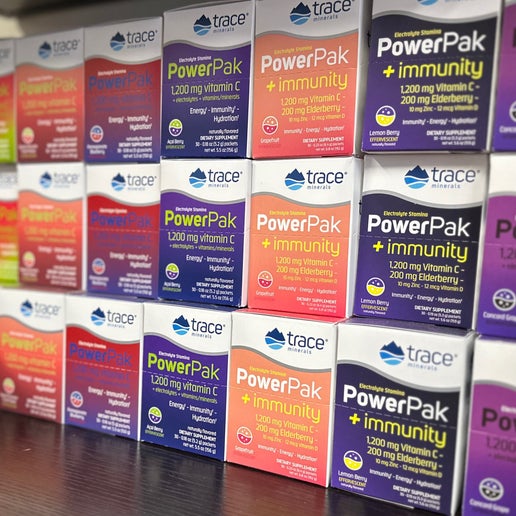Why We Need Antioxidants
The body is constantly changing. Your skin cells are replaced every month or so, your blood cells are renewed every few months. An enormous number of reactions are involved and many of them are oxidation-reduction reactions, or Redox reactions. You cannot see it happening, but your body is constantly going through oxidative reactions. Oxidation occurs when a free radical takes an electron from a molecule. Some ionizing phenomena result in a chain reaction of disrupted molecules in the body. Electron balance and electron exchanges are crucial to the functions of the cells and disruption can drastically change many dynamics in the body. When even one electron gets taken by a free radical, the molecule is changed and functions differently.
During normal bodily processes the body will produce these free radicals as a result of the oxidation that naturally occurs. Your body naturally makes antioxidants to counteract these radicals by chemically reducing them, but, in an ironic turn, these natural antioxidants themselves become oxidized and require an antioxidant from your diet to restore them. But what happens when there are more free radical than antioxidants in your body?
Oxidative Stress
When there are more free radicals than antioxidants your body goes into oxidative stress. As we have said here before- the problem with stress is not the stressor, it’s the failure to adapt to the stressor. [1] The failure to recover from stress is the disorder we describe as stress, and these oxidation/reduction processes seem to be at the heart of it.
While there seem to be scenarios where oxidation leads to the formation of free radicals which participate in healing an injury or fighting off an infection, this doesn’t change the overarching continuum where oxidation/reduction pressures create a continued and ongoing demand for reducing agents- antioxidants, in order to prevent the metabolic failure that is oxidative stress, which describes the disrupted homeostasis that is unchecked oxidation.
This oxidative stress can be bad for the body when your body stays in this state for too long. A lack of quality antioxidants can force your body into an oxidative stressed state for prolonged periods of time resulting in an acceleration of the aging process and may contribute to a number of health conditions including cancer. Here in the clinic we have come to look for these deficiencies/inadequacies whenever a patient isn’t recovering or responding to reasonable measures.
Lack of antioxidants is only half of the picture that finds your body staying in the oxidative stressed state. Diet, lifestyle, smoking, alcohol, pollution, certain medicines, radiation, toxins like pesticides, excess sunlight and other health conditions can contribute to an increased number of free radicals.
Different Types of Antioxidants
There are many antioxidants, and they work in different ways. This is why you are supposed to be getting many vitamins and nutrients on a daily basis. Among the ways we can look at them and arrive at some understanding is to consider the environments in which antioxidants work. Water soluble vs fat soluble are two clear distinctions that separate different antioxidants. Water soluble antioxidants work to get rid of the free radicals in your cells or in bodily fluid while fat soluble antioxidants work to prevent damage to your cell membranes and DNA.
We have found that Trace Power Paks are a great source of a water-soluble antioxidant. Vitamin C gets absorbed through the intestine. By ingesting a high-quality vitamin c product with minerals in solution it can improve the delivery of vitamin C to your body.
Vitamins A, D and E are fundamental and essential fat soluble antioxidants. You can find vitamin E as a supplement or you can mindfully choose foods that are high with vitamin E. Beta Carotene is a reliable and safe form of extra Vitamin A. Vitamin A is held to enjoy carte balance straight through to the nucleus of the cell making it a very important antioxidant. Vitamin D inadequacy is near pandemic most of us should consider supplementing Vitamin D, perhaps getting tested if you are in doubt. Most doctors are happy to order a Vitamin D test for their patients nowadays. Vitamin D inadequacies are associated with a great and growing number of disorders to include some cancers. We all saw the value of Vitamin D when managing the recovery from Covid infections. Another very good and important fat soluble antioxidant is Co Q-10, the levels of which can suffer disturbance in those taking statins.
Making sure you are getting enough antioxidants in your diet can help prevent your body from being negatively impacted by these oxidizing free radicals. While food source nutrients are the preferred forms, supplementation for many people makes sense. If you are unsure of where to start, ask your doctor or a dietary specialist.
- Hans Selye, “Stress and the General Adaptation Syndrome”, NCBI, British Medical Journal, 6/17/1950, https://www.ncbi.nlm.nih.gov/pmc/articles/PMC2038162/pdf/brmedj03603-0003.pdf
Written by: Donaid Seals D.C
Dr. Seals is a practicing Doctor of Chiropractic with over 25 years of experience caring for people across three states. His thinking is the product of his education, practice experience and many years in the natural foods and fitness industry. He has become living proof that old muscleheads don’t die-or fade away; sometimes they grow up to bring real-world expertise to the clinical picture. Traditional background information is available here.

I came across this wonderful site a couple days back, they produce splendid content for readers. The site owner knows how to provide value to fans. I’m pleased and hope they continue creating excellent material.